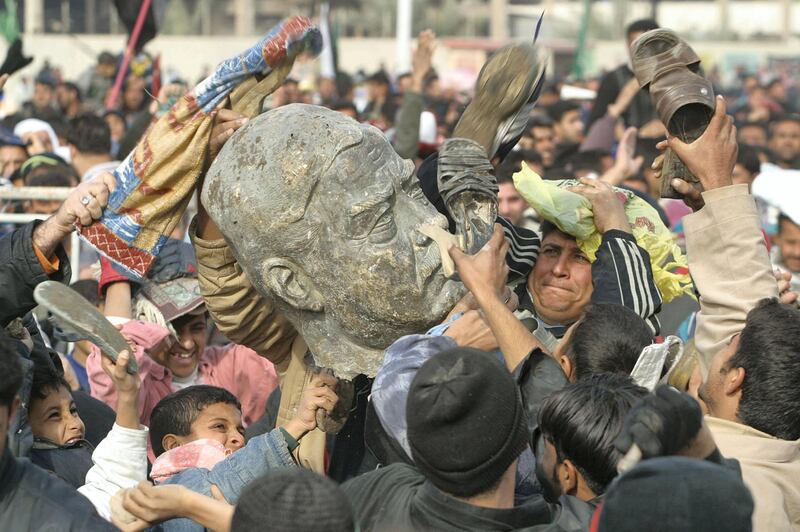To understand the Middle East’s current woes, we must look at the region through a historical prism. The Gulf region has been the subject of conflict since its integration into the modern world system in the 16th century. Oil was not the strategic prize then; it was the geopolitics of trade that divided nations. The Gulf was the gateway to riches in Africa and Asia, and the road to highly coveted trade, particularly in spices. The Portuguese laid anchor in the Gulf and did not leave until local resistance fighters chased them away in the 17th century.
The geopolitics of trade was again at play when the British extended their empire in the 19th century and Pax Britannica ruled. The region saw relative peace during that period; however, the British had little to show for it when they left East of the Suez in 1971 as the Trucial States became the UAE, a subject dealt with by Mohammed Al Fahim in his book From Rags to Riches: A Story of Abu Dhabi.
The Gulf states, from Bahrain to Qatar and from the UAE to Oman, were suddenly exposed to the wilderness of the world system, one that is, according to scholars from classic schools of thought on international relations theory, anarchic, with actions primarily motivated by survival. For the first time in decades, Gulf states had to fend for themselves.
They were challenged in earnest by the shah of Iran, who imposed his claim on Bahrain and the three islands – Abu Musa and the Greater and Lesser Tunbs – belonging to the emirates of Sharjah and Ras al Khaimah. The great powers that dominated in the Gulf, the US and the UK, rebuffed the shah over Bahrain but acquiesced to the second claim. The three islands were then seized in an illegal Iranian occupation, which continues to this day, while Bahrain gained independence in 1971.
Not long after the dust had settled, another conflict hung like a miasma over the Gulf. The third Arab-Israeli war erupted in 1973. When the US decided to back Israel, Arab states imposed an oil boycott on countries that rallied to Israel’s defence, including the US.
The international oil crisis of 1973 sent prices skyrocketing. The price of oil quadrupled, leading to enormous capital transfer, which in historical terms was the greatest capital transfer since Spaniards transferred bullion from the new world. More important was the transformation of the geopolitical reality of the Gulf region. Henry Kissinger noted that what had transpired "altered irrevocably the world as it had grown up in the post-war period".
Since then, the region’s development has been funded by oil wealth. Oil has become a strategic commodity, in light of the region not having the security guarantee of being part of an empire. As the region’s importance has grown, so have its troubles. Iran’s shah used the windfall from oil for imperial grandeur and development was reduced to little more than a facade. Deprived of oil wealth, Iranians’ political sensibilities and the shah’s hauteur led to his downfall in 1979, and the new regime vowed to export its revolution to other Muslim countries. The seed of instability have flourished ever since.
Saddam Hussein, who assumed power in Iraq a few months after the success of Iran's revolution, either panicked or seized the moment and launched an attack on Iran that plunged the region into chaos. The war lasted eight years and claimed the lives of at least one million people. Both regimes survived but the same could not be said of their countries, devastated beyond recognition.
War-weary Iraqis felt the squeeze most and the regime felt damaged by the ravages of war. Hussein saw Kuwait as his saving grace. In August 1990, he waged his second war in a decade when he invaded Kuwait, then had to face an international coalition led by the US, which evicted Iraqi forces and imposed international embargoes that crippled the country for some time. A decade later, the US-led coalition invaded and overthrew Hussein’s regime. The move restructured the geopolitical landscape of the region.
Iran did not waste time in fishing in the troubled waters of the Gulf. Since the 2003 war, it has become the greatest international player in the political and social scene of Iraq. Its influence has increased in Lebanon and it has directly involved itself in Syria's counter-revolution. Secure in its realm, it has started roaming Africa and Asia under the mantle of religion and a Shiite version of liberation theology, thus committing the sin of simony.
The Obama administration was expected to bring peace and quiet to the region, still reeling from the disastrous invasion of Iraq in 2003. Then US president Barrack Obama hit a home run with his Cairo speech in 2009. Retrospectively, however, it proved to be mere bluster. The agreement that his administration signed with Tehran, the 2015 nuclear deal, did not fly domestically. The Senate would not ratify the treaty, nor could it be sold to the region. Gulf states have long had concerns about Iran’s malign behaviour, beyond the nuclear issue. That and the fact regional actors were kept in the dark led to a frosty reception for the deal.
The perception that the US had abandoned the Middle East to pivot to East Asia and rebalance the rise of China has undermined trust in the US guaranteed the Gulf security structure of the region. It has not been a US retreat from the region so much as a relative decline. Donald Trump's election was a breath of fresh air, promising a decisive leader at last, one who would restore normality to the region and cut troublemakers down to size. Yet that has turned out to be a fantasy. Mr Trump himself is now in a difficult situation, one he cannot tweet his way out of.
These, then, are the historical roots of regional insecurity. A combination of strategic resources, ambitious leaders, historical grievances, great powers jostling, vulnerable states, financial and economic interests and arms races make for a combustible region, where peace is not guaranteed by any measure.
Albadr Alshateri is a former professor at the National Defence College in Abu Dhabi






